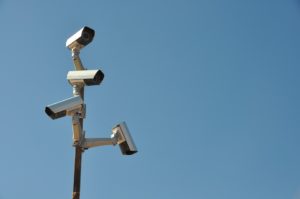In 2018, I wrote an article, Seven Rules For Running A Real Left-wing Government.
The article was based on an ur-fact that wasn’t made explicit in the piece:
Centrists and right-wingers don’t consider left-wing government legitimate.
When I wrote about the seven rules, it was in reaction to the turn of the tide in South and Central America: the loss of left-wing governments there. Since then, Bolivia has suffered a right-wing coup.
What is remarkable about these reversals is that they were either done illegitimately, or, once done, the full power of the prosecutorial state was used against the left. In Brazil, Lula, who would have easily won, was locked up on bogus corruption charges. In Bolivia, electoral fraud was alleged. It turns out there was none. The government which took charge did not, however, win the election by any measure.
Once governments were in power, they used the force of the state to destroy their left-wing enemies.
They did things they would never do against right-wing or centrist opponents.
That’s because, to them, the left cannot ever be allowed to take or hold power, period. If a left-wing government gets in power, it is prima facie illegitimate.
This is a profound and genuine belief.
And it has an effect even before the left gets into power. The best recent example is that UK Labor party staffers were working actively to lose the 2017 and 2020 elections. We have emails, we have proof. They went so far as to micro-target Corbyn with Facebook ads tailored just to him, so he wouldn’t see the real ads that they were running–ads meant to make Labor lose.
In part, this is a case of the iron law of institutions: It’s better to run a weaker institution than to lose control of one.
But it is also an ideological matter: The left is considered illegitimate. Therefore, you do not have to play by they rules when fighting it.
The left, bless their hearts, tend to think that there are rules, and that they can play by them, win, and be allowed to rule. But all along the process, the left’s opponents do not and will never play by the rules when facing the left.
This has a long history. The US overthrew multiple elected governments overseas if they considered them left-wing. At home, coincidentally, JFK, RFK, MLK, and Malcom X were all assassinated within a period of less than ten years, and we are expected to believe that the US security apparatus had nothing to do with that. (This doesn’t even pass the laugh test.) There was a LOT of violence in the late 60s and early 70s, to the point of bombs going off every day, because there was, in fact a war going on and when the left realized their leaders were being killed and that peaceful victory would not be allowed, some of them actually fought.
They lost.
This is war. It is not a game.
Corbyn was deliberately sabotaged by his own bureaucracy, because he thought there were rules. His MPs sabotaged him. The press lied about him over 75 percent of the time. Sanders was taken out when every opponent except Biden all dropped out at the same time–a coordinated action for which I can’t recall a precedent. It was NOT normal, and it is not what would have happened if a centrist had been beating Biden. That theoretical centrist would have been allowed to win, and there would have been no hand-wringing about how that was happening because of a split field, because split fields are normal.
So, as with the seven rules, which include facts like having to restructure and (non-violently) purge the press, the same is true of being a left-winger. If you get into a place like where Corbyn was, you have to get rid of all the internal enemies. Not people who just disagree. This means all staffers who are not ideologically-aligned. As for MPs, test them; the moment they do something traitorous (as Labour’s MPs did over and over again), remove them from the party. For all MPs, re-select. Note that Boris Johnson immediately removed all MPs who challenged him on Brexit (his main issue) when they crossed him. He then won the election handily.
You do this because neoliberals and conservatives cannot be trusted because they do not believe that left-wing government is, or can be, legitimate. They already view it as war and they will cheat, lie, and put you in jail if they can. Failing that, they will engage in coups and assassination if they can.
You can’t play a game by the rules if the other side is determined to cheat and thinks you shouldn’t even be on the field.
Oh, and, if it’s not obvious, the police and the military always must be brought under control. This is a somewhat delicate process, but you cannot leave the violent institutions run by right-wingers, as they are today. The second they have an excuse they will turn on you. (This is one of the things that Venezuela got right and why Maduro has not yet been overthrown.)
This is a violent conflict. Centrists and right-wingers don’t even see old-style New Deal liberals as legitimate, and they will do anything they can to destroy them. This is how it has always been: They always hated FDR, they always hated the New Deal, they always hated and wanted to destroy the welfare state. They bided their time, used their power in the conservative institutions of the deep state, like the FBI and intelligence outfits, and they won. They learned by starting in peripheral nations like Iran, then they transferred what they learned back home.
More on that in another article.
For now: If you are left-wing, the right and the center see you as an enemy, and they will do anything necessary to destroy you if you reach a level they consider a threat.
Understand that in your bones.
The results of the work I do, like this article, are free, but food isn’t, so if you value my work, please DONATE or SUBSCRIBE.



 I’ve been reading UltraSociety, by Peter Turchin. Turchin’s a biologist who turned to mathematical models of human society, and he’s done interesting work, not all of which I agree with (or agree is quite as radical as he claims).
I’ve been reading UltraSociety, by Peter Turchin. Turchin’s a biologist who turned to mathematical models of human society, and he’s done interesting work, not all of which I agree with (or agree is quite as radical as he claims). It’s commonplace now to note that China is a surveillance state.
It’s commonplace now to note that China is a surveillance state.